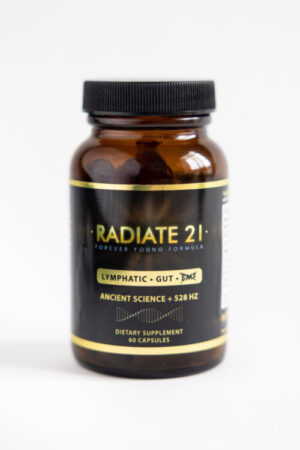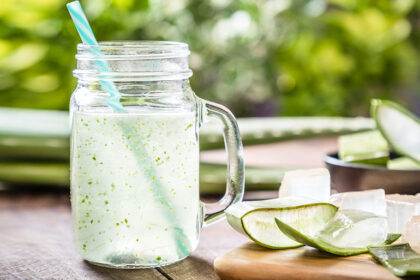In the intricate tapestry of the human body, the lymphatic system plays a pivotal yet often underestimated role. Long regarded primarily as a network responsible for immune defense and fluid balance, recent research has unveiled a profound connection between lymphatic malfunction and a spectrum of seemingly unrelated health issues. From inflammatory bowel diseases (IBD) to eye conditions and obesity, the lymphatic system’s intricate dance appears to influence far more than we once thought.
As science delves deeper into the complexities of this often-overlooked system, the revelations are nothing short of groundbreaking. Understanding the intricate links between lymphatic dysfunction and various health challenges has become paramount, opening doors to innovative approaches for both prevention and treatment.
In this article, we embark on a journey through the latest research findings that illuminate the connections between lymphatic imbalances and diverse health conditions. Moreover, we’ll explore the quickest and most effective ways to restore lymphatic flow and, in turn, foster homeostasis within the body. Join us as we unravel the mysteries of the lymphatic system and discover its profound impact on our overall well-being.
New Research On The Lymphatic System
In the last decade, advancements in scientific techniques have provided us with a deeper understanding of the lymphatic system – the network responsible for immune defense and fluid balance in our bodies.
Scientists have identified specific markers for lymphatic endothelial cells (LECs), making it possible to distinguish between blood and lymphatic vessels. This breakthrough has allowed researchers to uncover the mechanisms controlling the development and stability of lymphatic vessels and their functions.
Contrary to past beliefs that considered the lymphatic system as secondary, it is now recognized as a vital component for human well-being and health. The extensive web of vessels and interconnected lymph nodes in the lymphatic system plays crucial roles in maintaining tissue balance by clearing waste, overseeing immune cell movement and responses, and coordinating tissue regeneration.
Traditionally, issues with the lymphatic system were mainly associated with lymphedema. However, as research has progressed, we’ve discovered new functional roles of the lymphatic system in various diseases.
Conditions such as inflammatory bowel diseases, eye diseases, neurological disorders, obesity, and cardiovascular diseases are now linked to lymphatic defects. This suggests that restoring optimal lymphatic function could be a promising nonconventional strategy for managing these health challenges.
Understanding the factors that regulate lymphatic physiology is key to designing effective approaches. In adult tissues, the behavior and characteristics of lymphatic vessels are influenced by biochemical signals, such as vascular endothelial growth factors (VEGFs).
Additionally, external factors, like mechanical forces, impact lymphatic vessels. Cells experience different forces due to changes in fluid shear stress, extracellular matrix composition, and stiffness. Recent evidence indicates that lymphatic vessels can sense and respond to these mechanical forces, influencing gene expression and controlling various functions like cytoskeleton remodeling, proliferation, migration, and permeability.
How Forces Shape Lymphatic Behavior
There are still many questions, especially about how physical forces influence the growth of lymphatic vessels in diseases like cancer. Figuring out the specific role of physical signals, separate from the usual chemical signals, is tough because they share many of the same parts. This exploration is key to understanding how lymphatic vessels respond to different cues.
While we know that forces like fluid shear stress affect lymphatic function, the real story is likely more complicated. In diseases where the environment around these vessels changes, they’re hit with various signals at once. Understanding how these vessels manage this complexity is crucial to prevent any negative effects.
As we explore how lymphatic vessels sense and respond to different signals, a potential treatment is on the horizon. By targeting a mechanical force sensor called Piezo-1, we’ve seen promising early results.
This approach could be a game-changer for treating conditions like swollen limbs (lymphedema) by encouraging the growth of healthy lymphatic vessels. It’s a real-life example of how understanding the mechanics of the lymphatic system can lead to better treatments.
7 Practical Steps to Restore Lymphatic Balance
1. Lymphatic Drainage Massage: A Soothing Touch for Wellness
Consider indulging in lymphatic drainage massage, a gentle and therapeutic technique designed to encourage the natural flow of lymph. This hands-on approach aids in reducing swelling, promoting detoxification, and fostering overall lymphatic well-being. Whether done professionally or through self-massage techniques, this soothing practice can be a valuable addition to your wellness routine.
2. Exercise: A Dynamic Boost for Lymphatic Flow
Physical activity stands as a cornerstone for a healthy lymphatic system. Regular exercise not only enhances cardiovascular health but also stimulates lymphatic circulation. Engaging in activities like brisk walking, swimming, or yoga promotes the rhythmic contractions of muscles, facilitating the movement of lymphatic fluids and supporting the body’s natural detoxification processes.
3. Deep Breathing: Oxygenating Your Lymphatic System
Simple yet impactful, deep breathing exercises contribute to lymphatic flow by enhancing oxygenation and promoting the elimination of waste. Incorporate moments of intentional deep breathing into your daily routine to encourage the exchange of gases in your lungs and stimulate lymphatic circulation.
4. Dry Brushing: Invigorating Your Skin and Lymphatics
Dry brushing involves using a natural-bristle brush to gently exfoliate the skin. This practice not only promotes smoother skin but also stimulates the lymphatic system by encouraging the removal of dead skin cells and facilitating lymphatic flow. Incorporate dry brushing into your pre-shower routine for a revitalizing experience.
5. Clean Up Your Diet: Nourish Your Body, Support Your Lymphatics
A balanced and nutritious diet plays a pivotal role in maintaining optimal lymphatic function. Reduce processed foods, refined sugars, and excessive salt intake, while incorporating nutrient-rich fruits, vegetables, and whole grains. Supporting your body with wholesome nutrition aids in overall well-being and contributes to lymphatic health.
6. Wear Loose Clothing: Allow Your Lymphatics to Breathe
Opt for loose-fitting clothing to prevent unnecessary constriction and promote optimal lymphatic flow. Tight clothing, especially around areas with abundant lymph nodes, may impede the natural movement of lymphatic fluids. Choose comfortable attire that allows your body the freedom to function without constraint.
7. Stay Hydrated: Hydration for Lymphatic Fluids
Adequate hydration is essential for maintaining fluid balance in the body, including the lymphatic system. Ensure you drink enough water throughout the day to support the efficient transport of nutrients and waste products through the lymphatic vessels. Hydration is a simple yet impactful way to sustain lymphatic health.
Bonus: Embrace Nature’s Support with Oils and Botanicals
Consider adding a touch of nature to your lymphatic wellness journey. Oils and botanicals such as lemongrass, oregano, Una de Gato, and clove, as found in blends like Radiate 21, offer additional support. Whether through aromatherapy or incorporating these elements into your daily regimen, these natural additions can complement your efforts in nurturing a balanced and harmonious lymphatic system.
Click Here To Learn More About Radiate 21
Nurturing Your Lymphatic Wellness Journey
As we conclude this exploration into the intricacies of the lymphatic system and its profound impact on our overall well-being, it’s evident that fostering lymphatic health involves a harmonious blend of mindful practices and natural support. From the soothing touch of lymphatic drainage massage to the invigorating benefits of exercise, deep breathing, and dry brushing, each step contributes to the restoration of balance within our bodies.
Embracing a clean and nourishing diet, choosing comfortable clothing, and staying adequately hydrated are foundational pillars that sustain the optimal functioning of the lymphatic system. These simple yet impactful lifestyle choices can significantly influence our journey towards holistic health.
As a final note, the incorporation of nature’s gifts in the form of essential oils and botanicals, such as lemongrass, oregano, Una de Gato, clove, and others adds an extra layer of support. Whether enjoyed through aromatherapy or integrated into daily routines, these natural elements, as exemplified by blends like Radiate 21, offer a gentle yet potent ally in our quest for lymphatic well-being.
Remember, nurturing your lymphatic system is not just a task but a journey – one that involves mindful choices, self-care practices, and an appreciation for the body’s intricate balance. As you embark on this journey, may these insights and recommendations serve as guiding lights, empowering you to reclaim and maintain the harmonious flow of your lymphatic system for a life of vitality and balance.






